

Group general counsel | Mojay Global Holding Limited



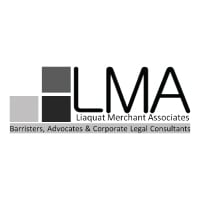
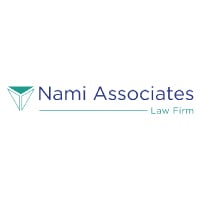
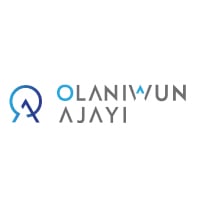
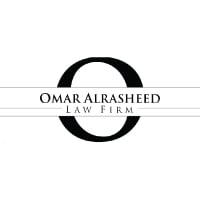

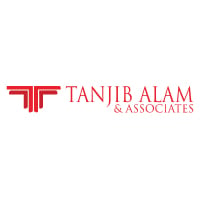


Brian Dunn
Group general counsel | Mojay Global Holding Limited
How do you approach managing legal aspects during periods of instability or crises, and how does your legal strategy align with the broader business strategy to ensure the organisation’s resilience?
Periods of instability are inevitable in the markets and startup environments in which I operate, whether due to sudden regulatory change, shifting geopolitical conditions, or financial market pressures. My approach in such circumstances is rooted in three principles: clarity, adaptability, and alignment with business objectives.
First, I ensure clarity of governance and decision-making authority. During crises, ambiguity can amplify risk. By implementing clear reserved matters, compliance calendars, and board-level frameworks, I create certainty about who can act, how quickly, and within what legal boundaries. This allows the business to respond at speed while maintaining legal and regulatory integrity.
Second, I focus on adaptability to external shocks. For example, when regulatory frameworks for fintech and payments shifted in the UAE and GCC, I quickly assessed the impact on our operations and provided structured options for the leadership team, from immediate compliance adjustments to longer-term licensing strategies. This enabled the business to continue operating without disruption while positioning it for future growth.
Third, I ensure that the legal response is always aligned with the organisation’s broader commercial strategy. Legal in a crisis should not be a brake; it should be a stabiliser. In practice, this has meant creating risk-mitigation pathways that preserve investor confidence, protect customer relationships, and safeguard intellectual property, while giving management the flexibility to execute their business plans. This enables businesses to continue operating without disruption while positioning themselves for future growth. Ultimately, my philosophy is that resilience is built not only through crisis response but through preparation. By embedding governance, regulatory foresight, and contractual protections into the business model from the outset, I enable organisations to withstand shocks and emerge stronger, with legal strategy acting as a foundation for long-term stability.
Based on your experiences in the past year, are there any trends in the legal or business world that you are keeping an eye on, of which you think other in-house lawyers should be mindful?
Over the past year, I have been closely following three key trends that I believe will define the inhouse role in this region: AI regulation, fintech licensing and open finance, and investor-driven governance expectations.
The first is the rapid emergence of AI regulation, both in the Middle East and globally. With the EU AI Act creating extraterritorial obligations and local regulators issuing guidelines for ethical AI use, in-house counsel must prepare businesses to comply with frameworks that are evolving quickly but have far-reaching commercial implications. For companies building or deploying AI tools, this is no longer a future risk — it is a present compliance requirement that affects product design, contracting, and liability allocation.
An additional challenge is the speed with which businesses are adopting AI compared to the slower pace of regulation. This creates a compliance gap that in-house counsel must bridge by developing internal policies, risk assessments, and contractual protections ahead of formal legal mandates. In my view, the ability to anticipate regulation and embed responsible AI practices before they are legally required will distinguish forward-thinking organisations from those that risk enforcement or reputational harm.
The second is the acceleration of fintech regulation and open finance initiatives across the GCC and beyond. New payment services frameworks, licensing requirements for SME lending platforms, and open banking developments are reshaping the financial services landscape. For businesses operating in these areas, legal teams must play a proactive role in structuring products that are both compliant and attractive to investors, while also ensuring consumer protection and trust.
The complexity here is that regulations are not harmonised across jurisdictions, meaning that cross-border operations must navigate multiple licensing regimes, data-sharing rules, and supervisory expectations. For in-house lawyers, this requires building scalable compliance frameworks that allow innovation to expand across borders without exposing the company to regulatory fragmentation or enforcement risk. The region is moving towards greater alignment, but until that occurs, agility in regulatory strategy is critical.
The third trend is the growing emphasis on governance and investor readiness, even for early-stage or high-growth companies. Over the past year, I have seen investors place increasing value on clean corporate structures, enforceable shareholder arrangements, and clear IP ownership. This has shifted the role of in-house counsel from being reactive problem-solvers to becoming architects of governance frameworks that directly influence valuation and deal execution.
This trend is especially pronounced where international capital is involved. Global investors expect governance standards that mirror those in mature markets, regardless of the jurisdiction of incorporation. In practice, this means that companies in emerging markets cannot rely on informal structures or patchwork compliance. They must demonstrate governance maturity from day one. The in-house counsel who can deliver this bridge between local practice and global investor expectation will not only de-risk the company but also unlock capital that might otherwise be inaccessible.
Together, these trends highlight the expanding scope of the in-house function. Today’s general counsel must not only interpret laws and manage risk, but also anticipate regulatory shifts, align legal frameworks with investor expectations, and enable innovation in highly regulated sectors. In short, the role is becoming more strategic than ever — with the ability to shape, not just support, the business agenda.
What ties these themes together is the recognition that in-house counsel are no longer operating in the background of commercial activity. They are now central to questions of market entry, product viability, and capital raising. Those who understand how to align legal strategy with technology, regulation, and investor confidence will set the pace for their organisations, and for the broader profession.
General counsel | Finerton
Group general counsel | Movver
Head of legal and compliance | Unifonic